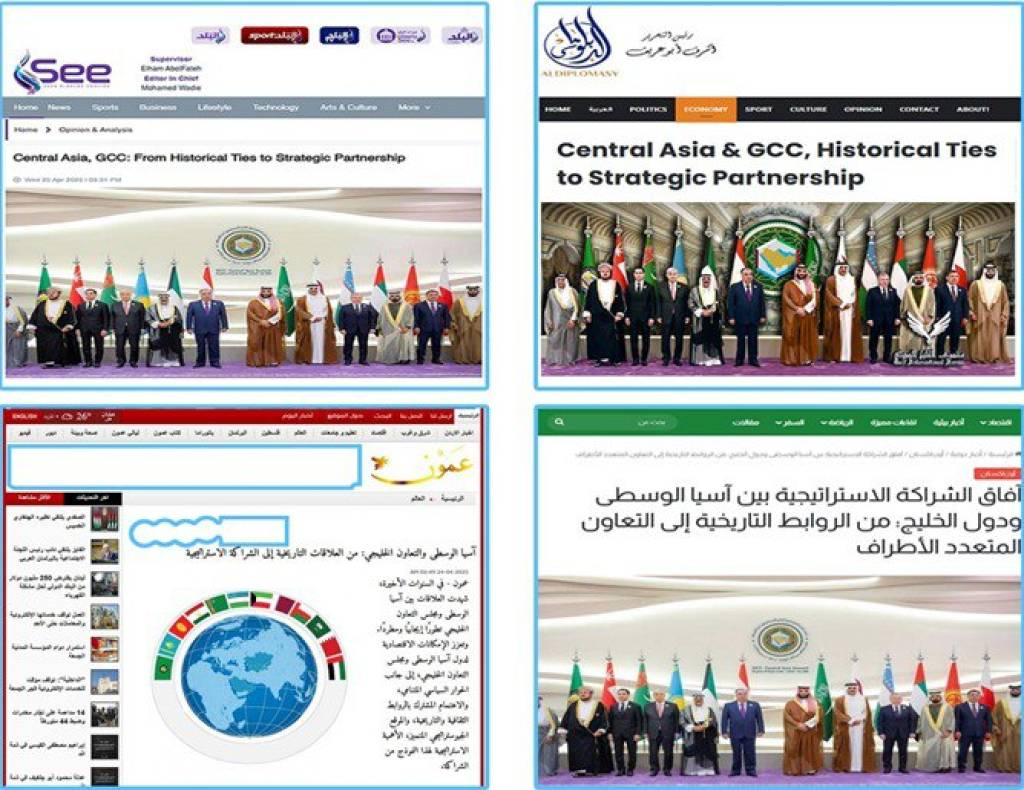
Leading online publications in Egypt – Sada El Balad and Al Diplomacy, Kuwait’s Q8 Press, and Jordan’s Ammon News – published a joint article by the Director of the Institute for Strategic and Regional Studies under the President of the Republic of Uzbekistan, Eldor Aripov, and the Chairman of the Gulf Research Center, Abdulaziz Sager, titled “Central Asia and GCC: From historical ties to strategic partnership”.
The article presents a comprehensive analysis of the dynamically developing relations between Central Asia and the Gulf Cooperation Council (GCC), and outlines the prospects for a strategic partnership between the two regions.
“A turning point in this process was the first historic Summit of the Heads of State of the GCC and Central Asian countries in Jeddah held on July 19, 2023, which laid the foundation for long-term strategic cooperation. The second summit of the said dialogue is scheduled for May 2025 in Samarkand. The choice of Samarkand as a venue for such an important summit is not coincidental. For centuries, this famous city, located at the intersection of the main roads of the Great Silk Road, has been an important center for the dialogue of civilizations, and diplomatic, trade, and cultural exchange between the East and the West. In this regard, holding the event in Samarkand is intended to give new impetus to historical ties”, the authors state.
“The economic potential of the CA and GCC countries, complemented by a deepening political dialogue, mutual interest in cultural and historical ties, and advantageous geostrategic positioning, is enhancing the strategic importance of this partnership format”, the article notes.
The authors emphasize that the total volume of GCC countries’ investments in Central Asia has steadily grown in recent years, having increased almost threefold since 2022.
As analysts note, significant successes have been achieved in the tourism sector: Central Asia is becoming an attractive destination for tourists from the GCC countries. For example, in 2023, more than 8.3 thousand tourists from the GCC region visited Uzbekistan, and in 2024, 12 thousand (an increase of 44.5% compared to 2023). The most significant increase was from the KSA (71%) and the UAE (51%).
The authors also pay special attention to promising areas of cooperation, the potential of which has yet to be revealed: expanding trade through multilateral agreements, implementing transport projects (including the Trans-Afghan Corridor), attracting investment in infrastructure and high technology, developing the agro-industrial complex, and digital transformation.
According to the heads of leading analytical centers, strengthening scientific and intellectual interaction is another important area. “Research institutes and analytical centers of the two regions should play a special role in determining priority areas for the development of relations”, the authors are convinced.
In this regard, the first Forum of Think Tanks from Central Asia and the GCC countries will be held in Tashkent, Uzbekistan, on “Strengthening Strategic Partnership between Central Asia and the GCC: From Historical Ties to Comprehensive Cooperation.” Leading think tanks from both regions will attend this event.
The first interregional forum’s organizers are the Institute for Strategic and Regional Studies under the President of the Republic of Uzbekistan and the Gulf Research Center.
“In general, cooperation between Central Asia and the Cooperation Council for the Arab States of the Gulf opens real strategic prospects. The unifying principle is not only the cultural and historical proximity, but also the complementary nature of the economies”, conclude Eldor Aripov and Abdulaziz Sager.
UzA








